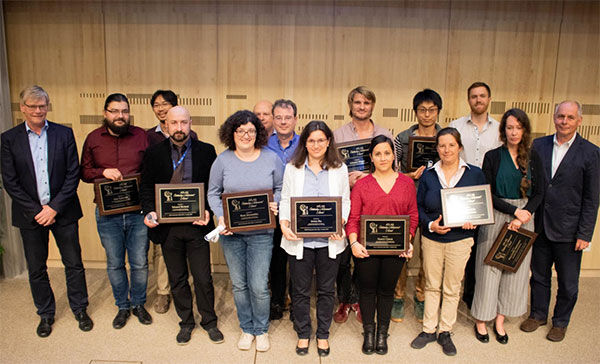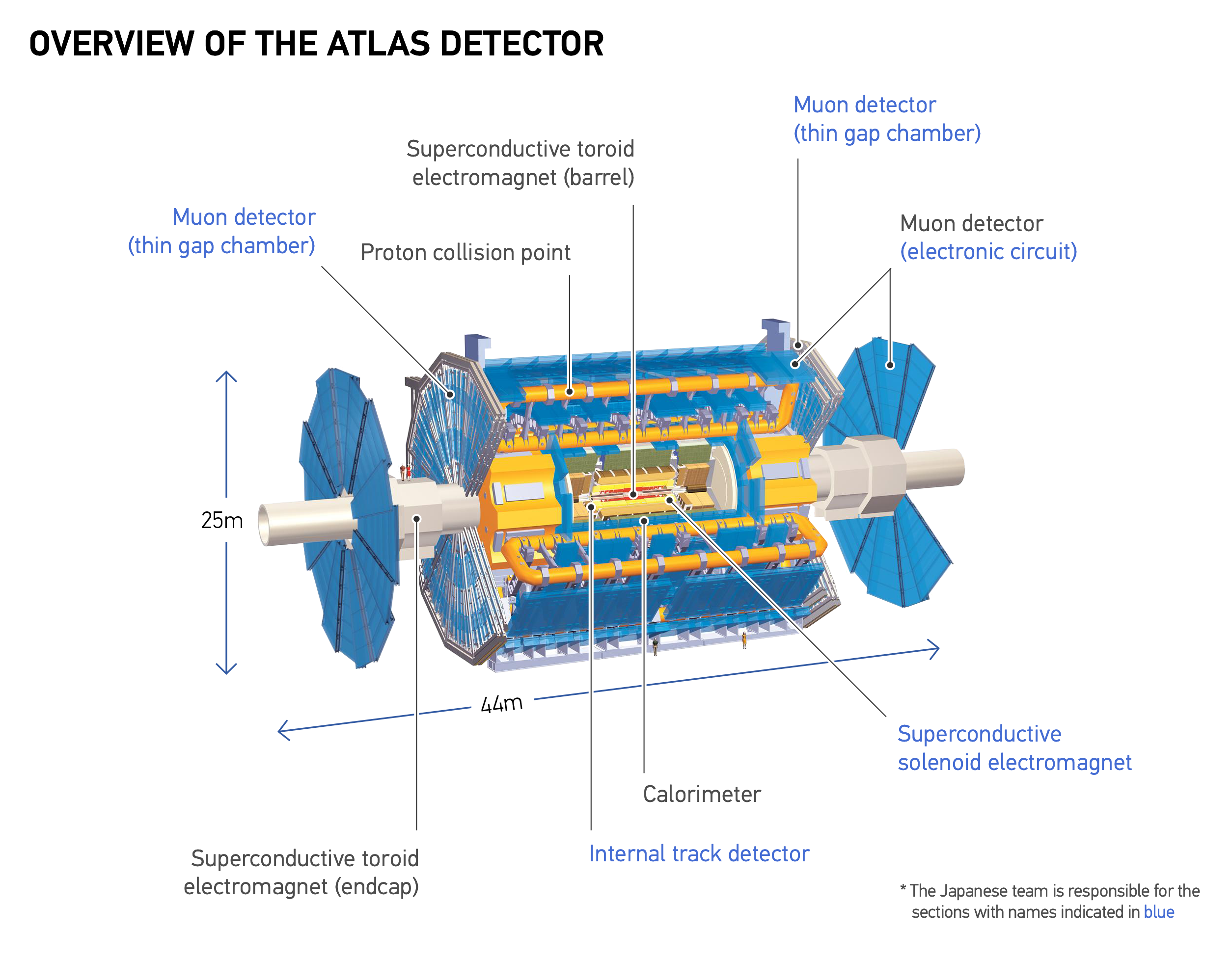On October 11, 2018, at the collaboration meeting held at CERN, the ATLAS Experiment Group held an awards ceremony to recognize exceptional researchers. The Outstanding Achievement Awards, established by the group in 2014, are presented to recognize outstanding contributions in all research fields other than physics analysis.
"Within the ATLAS Collaboration, huge efforts go into making the detector function seamlessly," said Awards Committee Chair Jim Pilcher, praising the award winners for their efforts.

Reason for award
Outstanding contributions in the development, deployment and commissioning of the burst-stopper for the ATLAS Level-1 muon trigger system
Contents of research contributing to award selection
From the start, the ATLAS experiment struggled with data loss due to "burst events". The bursts are phenomena caused by noise and associated with an extremely high hit occupancy for a few microseconds throughout the muon system within the ATLAS detector. This puts the muon system out of commission, and until it recovers, ATLAS data collection had to be stopped. This was the leading source of the DAQ inefficiency of the ATLAS at that time.
ATLAS Japan Group researchers, primarily from the University of Tokyo, and CERN researchers engaged in repeated discussions and worked to address the issue. A new "burst-stopper" system for preventing data loss due to the bursts was developed and installed. The system promptly detected the bursts and successfully prevented the system from going down. This new system was put into full operation from the end of 2016. It has protected the ATLAS detector from the bursts and made it possible to collect data with a high level of efficiency.
Assistant Professor Saito was appointed the ATLAS Experiment Group's level-1 endcap muon trigger system run coordinator in January 2017, and has been further continuing his research.

Future aspirations
Data is now steadily being acquired for the last year of the second run of the LHC. In the future, as the accelerator's performance is improved, it will become even harder for the ATLAS experiment to acquire data, so there is a constant need for system improvements. In order to continue acquiring high-quality ATLAS experiment data, ICEPP researchers will do their best at CERN's experimental site and will use this data to make new discoveries at even higher energy scales.
CERN announcement
- ATLAS Collaboration News(related site)
